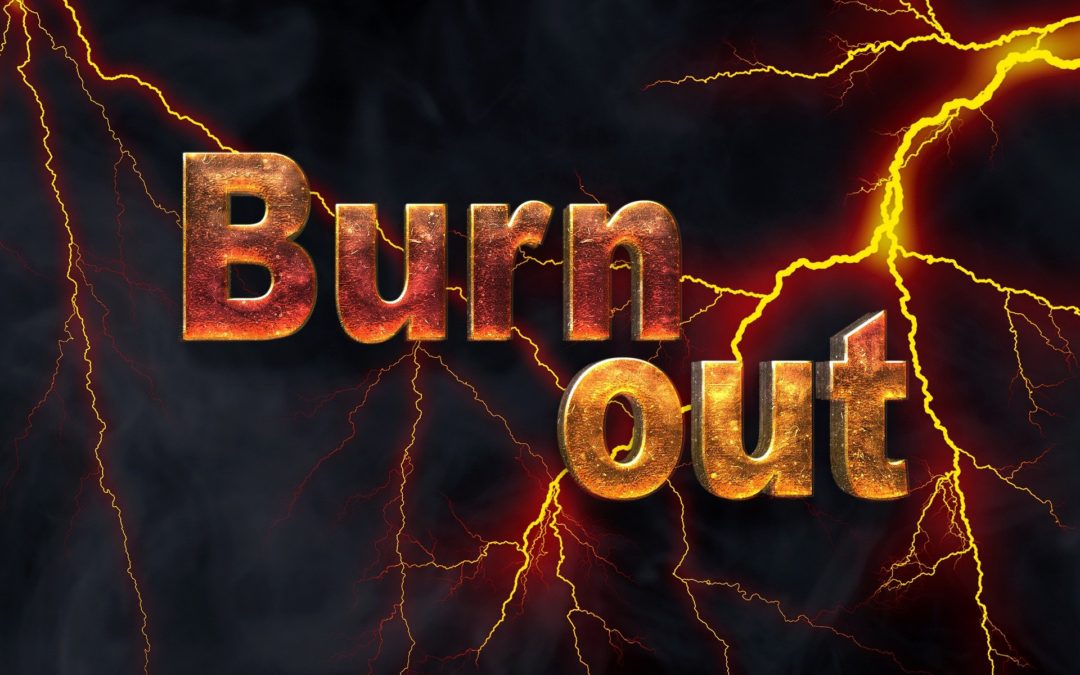Another one of the terms that have really caught the fancy of stressed corporate employees and the HR department, burnout is defined as a state of physical, emotional, and mental exhaustion caused by prolonged stress. You can officially label the situation as burnt out if you feel too overwhelmed and drained out while meeting the demands that your job and circumstances put on you.
While the term burnout has been popularized in the context of work, it can happen to even those who do not work in the corporate environment. It occurs when your life energies seem to have been sapped out based on the tasks that you are performing on a daily basis. You are likely to feel extremely helpless, hopeless, bitter, and cynical about your life.
Symptoms of Burnout
Total burnout does not happen in a day. It creeps up on you as you continue to ignore the initial signs. It can easily be prevented if you are aware of these initial signs and take active steps by seeking stress coaching or empowerment coaching. If you ignore these signs, they will grow and lead to a complete lockdown of your faculties (check out this podcast on what happens when you ignore the signs).
When you take up an assignment, there is initial enthusiasm around the whole task or a new job. Even at this stage, you can be cognizant about whether you are taking on too much and set your boundaries right away. This awareness can stop the snowballing effect to lead you towards burnout. If this is not arrested at this stage, stress is almost inevitable and if that is not nipped in the bud, it leads to chronic stress, something that has significant physical consequences like IBS, chronic fatigue, muscle tensions, and the like.
Physical symptoms of burnout include feeling drained, headaches, tensed muscles, frequent illnesses, and changes in diet and sleeping patterns.
Emotional symptoms of burnout include a sense of failing, feeling helpless and trapped, lack of motivation, negative outlook of the future, reduced or no satisfaction from the work done, and a feeling of being alone in the world.
Behaviorally you may see yourself withdrawing from tasks, isolating yourself, finding solace in short term and harmful solutions like alcohol, procrastination, and withdrawing in your own shell.
According to healthline, the stages of burnout that you may go through are:
- Excessive drive or ambition
- Working too hard
- Neglecting personal needs like sleep, rest, diet, exercise
- Displacement of conflict, directing frustration at others, blaming others
- Absolutely no time for non-work-related tasks or doing non-work-related tasks grudgingly
- Denial and refusal to see how you are moving towards extreme stress and shutdown
- Withdrawal and seeking refuge in being alone
- Behavioral changes like procrastination, inability to make decisions, lack of enthusiasm, missing work
- Depersonalization and feeling detached from life as you feel that you are unable to control anything
- Inner emptiness that can lead to short-term solutions like shopping, alcohol, or substance abuse
- Depression where you start to wonder about the meaning of life and move towards an existential crisis
- Mental and physical exhaustion to the extent of a collapse

If totally unaddressed, this can turn into a total blackout, complete disempowerment of faculties, and an inability to move forward.
Typical Causes of Burnout
Those with perfectionist tendencies are more prone to burnout. Type A personalities, with a need for higher levels of control, who are prone to a fast-paced, goal accomplishment environment also fall prey to burnout. These people are likely to push themselves towards taking on more than they can chew and overworking without sleep, entertainment, rest, or socializing and literally drive themselves towards burnout.
On the other hand, those who have a pessimistic view of life can also succumb to this malady. They have a higher need for social support, rewards, and recognition and quickly succumb to a depressive and unattached state if significant validation is not forthcoming.
Dealing with a Burnout
Most importantly, if you have come across this post and are not at complete burnout stage, take action now and reach out to a stress coach to make things better. You are sure to spend much more resources in terms of time and money if you let this continue.
Some self-help tips for managing burnout include the following:
- Review your priorities – look at your life and assess it from an objective perspective. Refrain from trying to justify your decisions or actions of the past. Just look at it as it is and review the amount of time you spend in the various areas of your life. A balanced life includes career, friends, significant other, fun activities or hobbies, finances, self-development, and self-care. Now think of how you would like it to be and remind yourself of how you would like to change it.
- Lifestyle – Choosing yourself and ensuring that you have a healthy lifestyle can help in managing stress. You already know what these things are – exercise, proper diet, and sleep. Put in an initial effort to arrive at your plan to ensure that these aspects of your life are not ignored. A little time spent every day on exercise, a good night’s sleep and a balanced diet increase your efficiency significantly.
- Reframe work – Look at how you have been spending a very large amount of time in your day towards only one aspect of life and reframe the way in which you think about your career. Reframing ideas and beliefs that are extremely set in your mind can get tough on your own. This is where a coach can help you see other different perspectives, opening you up to new possibilities and holistic life.
On another level, it is important to understand that burnouts tend to happen when your values are misaligned with what you are doing. Becoming conscious of these values and how they tie in with your work can lead to your own personal solutions that will set you free.
Featured image by: DarkmoonArt_de from Pixabay


Recent Comments